Yves Béhar gives striking shape and form to this new hybrid-electric catamaran concept
Solsea is a concept catamaran from Italian shipyard Rossinavi, blending zero emission cruising with design by Yves Béhar
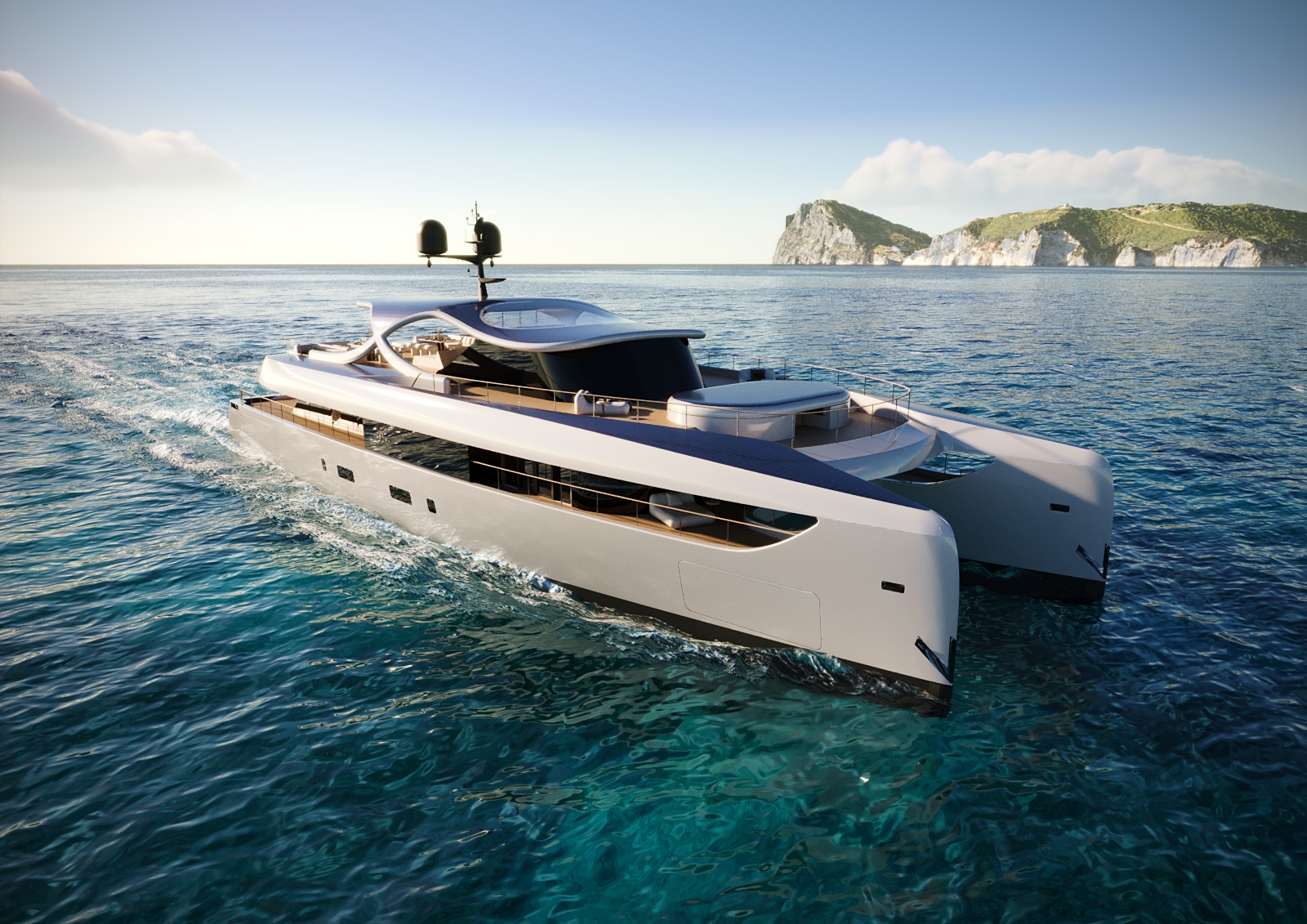
Solsea is a new concept catamaran from Rossinavi. We’ve previously covered the Italian shipyard’s Seawolf X, the first of its new generation hybrid-electric catamarans to be launched. The Solsea concept has debuted at this year’s Design Miami, showcasing not just Rossinavi’s pioneering tech, but also a sleek design, inside and out, by none other than Yves Béhar.
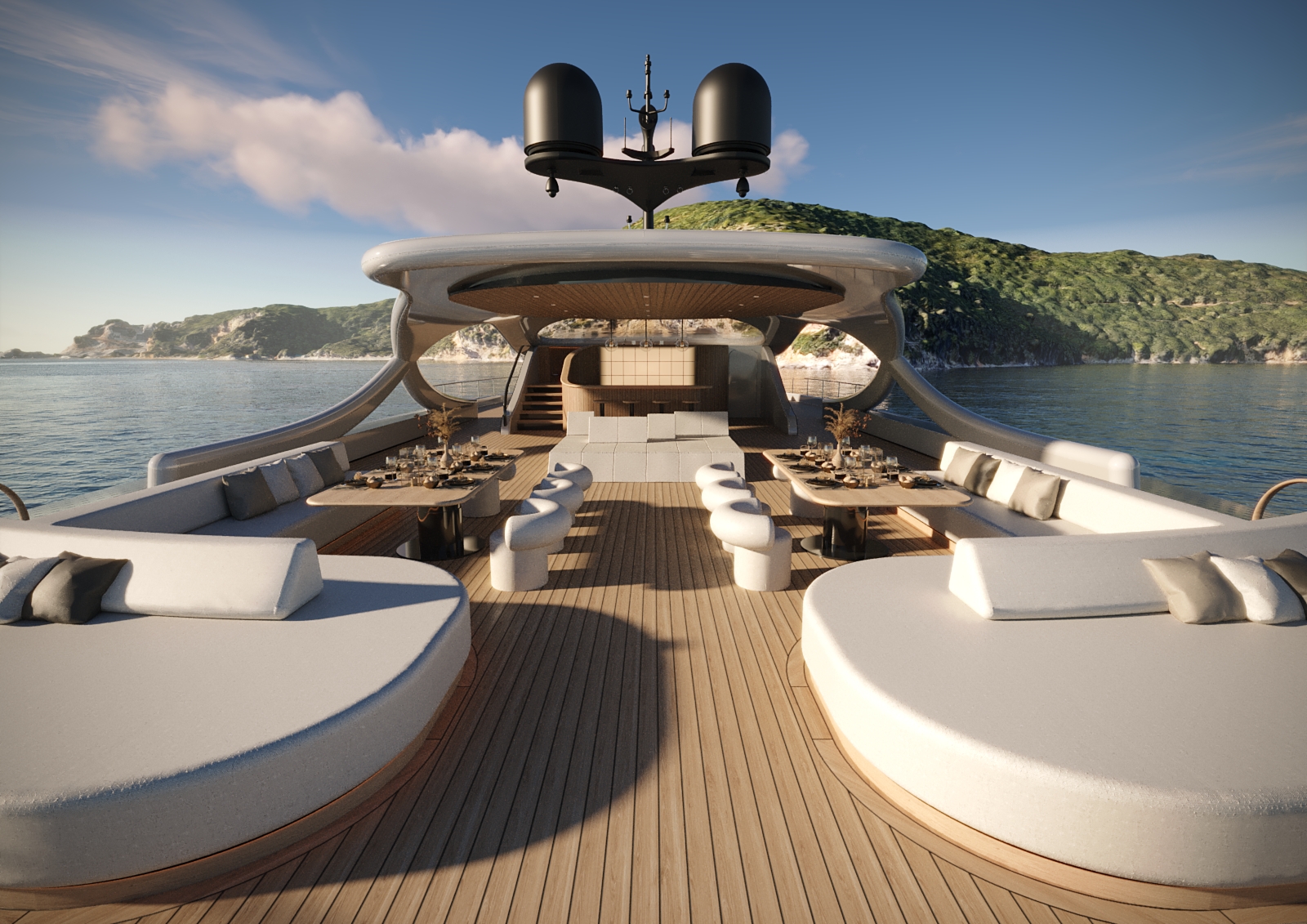
Onboard Solsea, the rear deck
Béhar is an accomplished sailor and surfer, and the project has brought these passions together with his studio’s focus on sustainable technology. The design also extends to the use of durable cork flooring (supplied by Amorin) and, appropriately enough, ocean-sourced recycled plastic wherever the material is required.
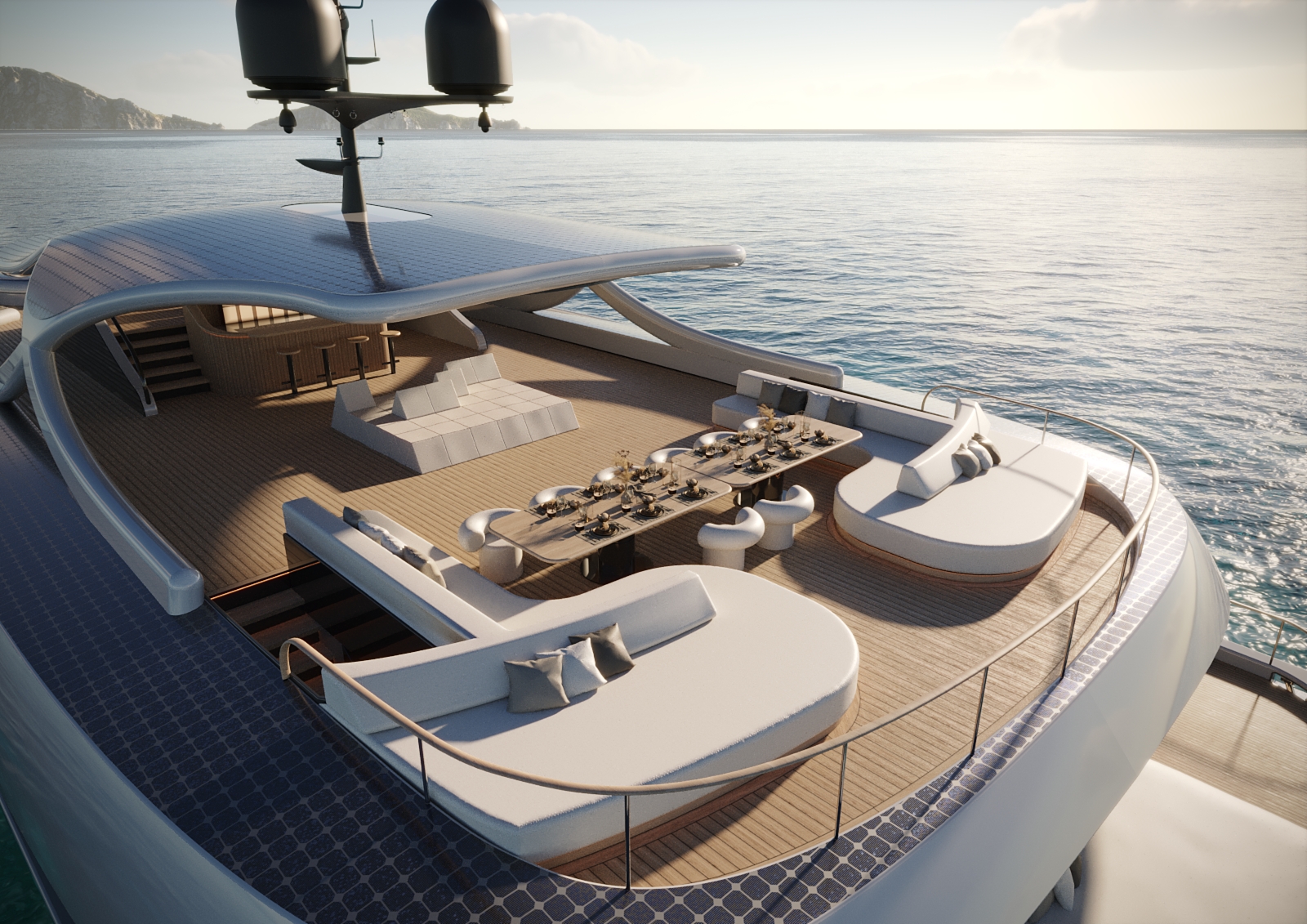
The superstructure incorporates the catamaran's solar panels
For their part, Rossinavi has benefited from Béhar’s unconventional approach to naval architecture. ‘It’s been an incredible journey to see how Yves Béhar reimagined the naval platform of our hybrid-electric catamaran,’ Federico Rossi, Chief Operating Officer of Rossinavi, ‘His fresh, external perspective brought a style that is both luxurious and refined.’
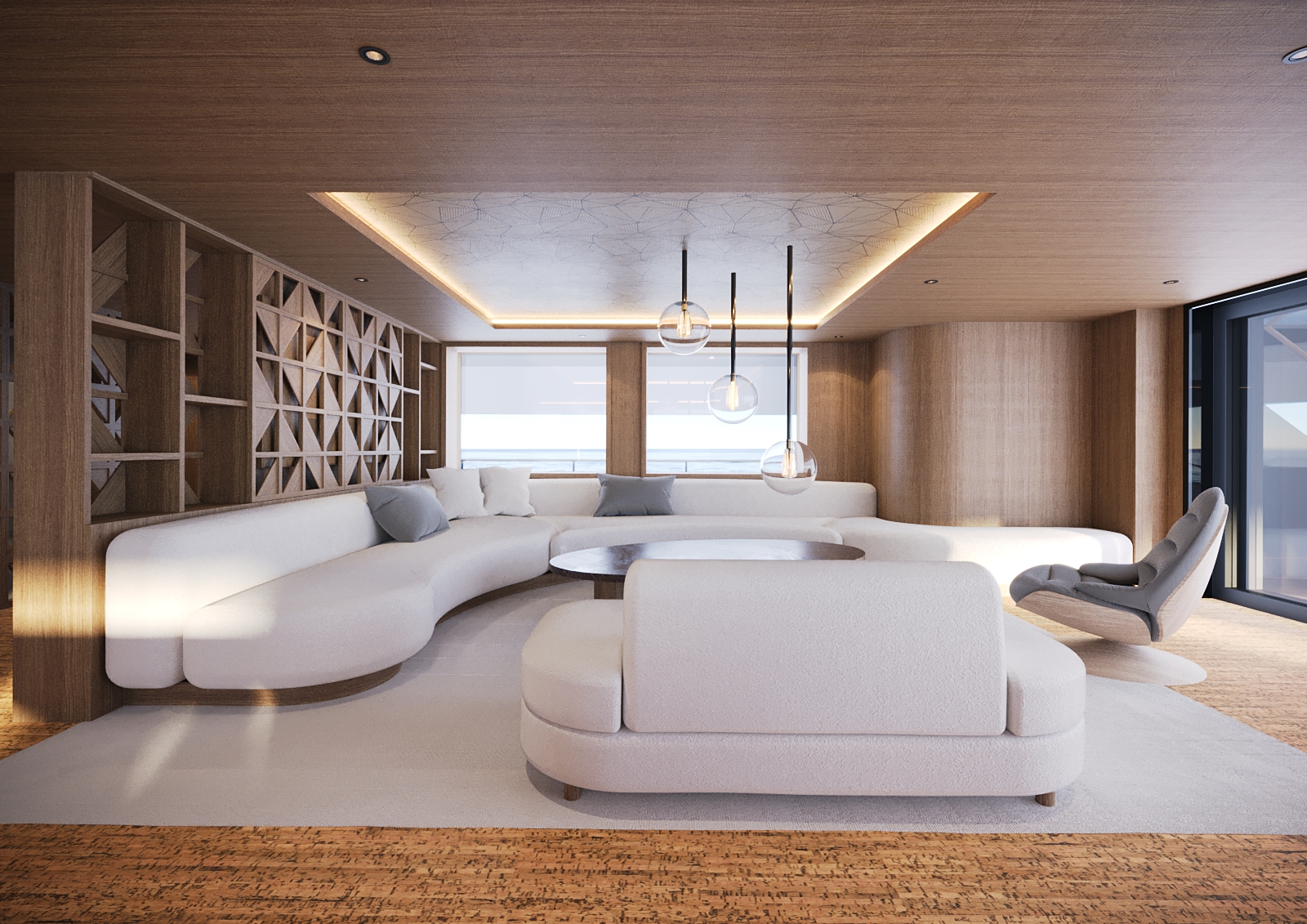
The main saloon features cork flooring and curved wooden panels
Inside and out, the Solsea concept shows a softer, warmer approach to design at sea. The Solsea’s advanced battery and solar panel system has been incorporated into the superstructure, with solar panels doubling up as shading structures on the expansive deck.
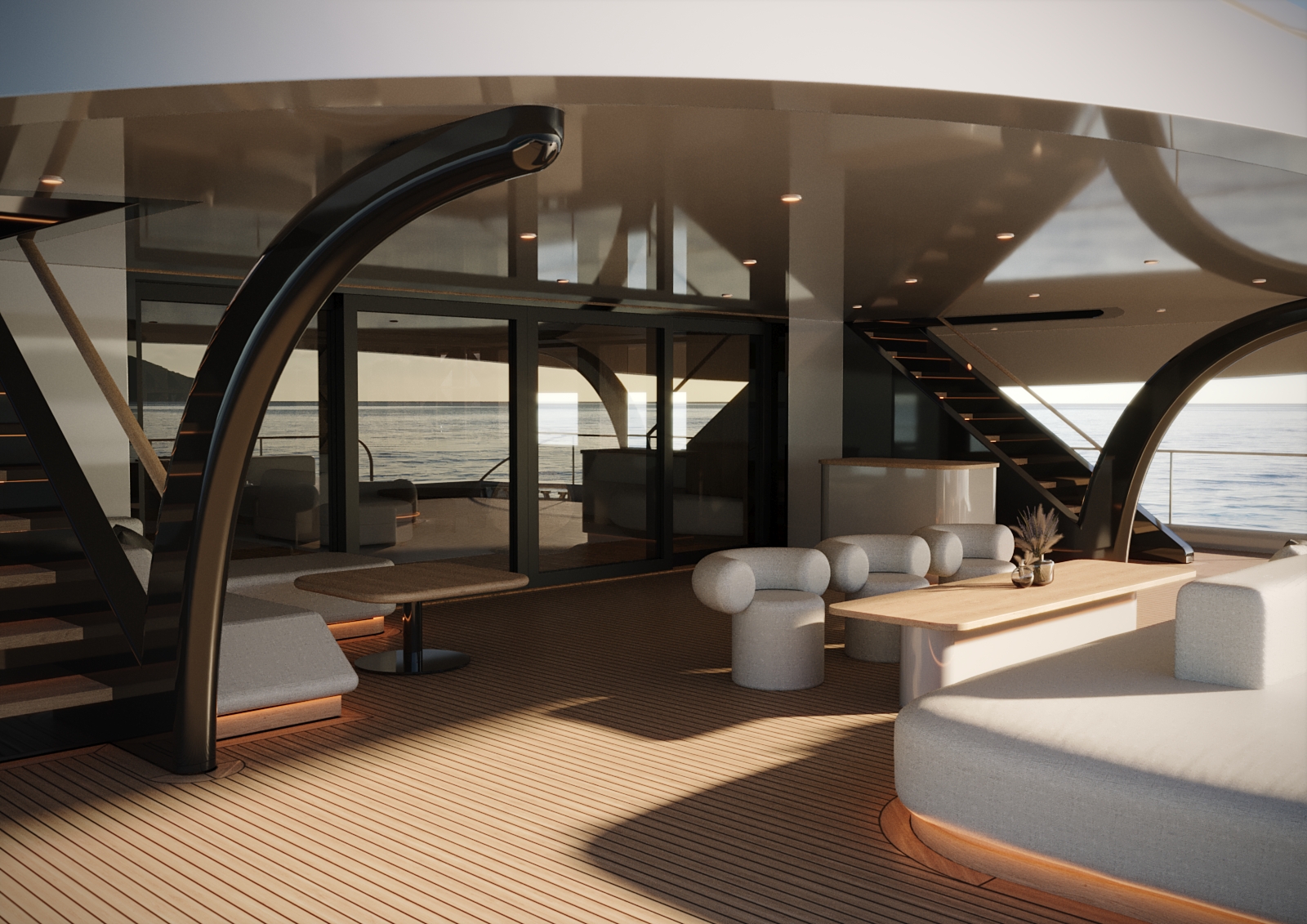
Structural elements are reduced to simple forms
As with Seawolf X, the combination of panels and on-board battery allow the yacht to give an 80% reduction in fuel consumption while cruising. It can even make a transatlantic trip under 80% electric power. For more relaxed day trips, Solsea is designed to operate 100% electrically. Fast charging should take around five hours at a suitably equipped marina.
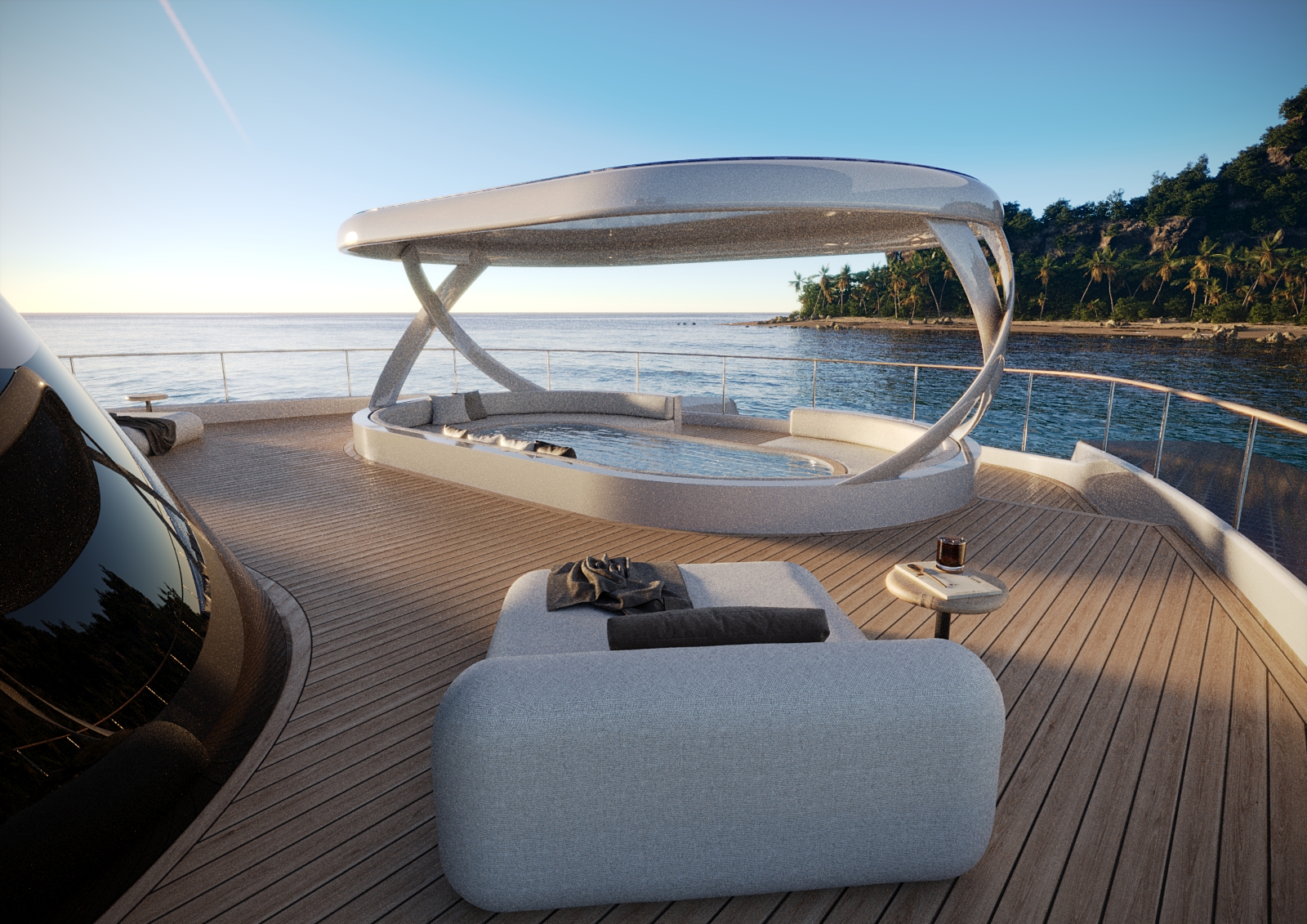
The lounge pool on the main deck
Three years in development, the new catamaran also uses Rossinavi’s advanced onboard artificial intelligence system, Rossinavi AI, which manages the distribution of energy between the catamaran’s systems, batteries and powertrain. When moored and unoccupied, Solsea has a special hibernation mode that can transfer power from the solar panels to the quayside.
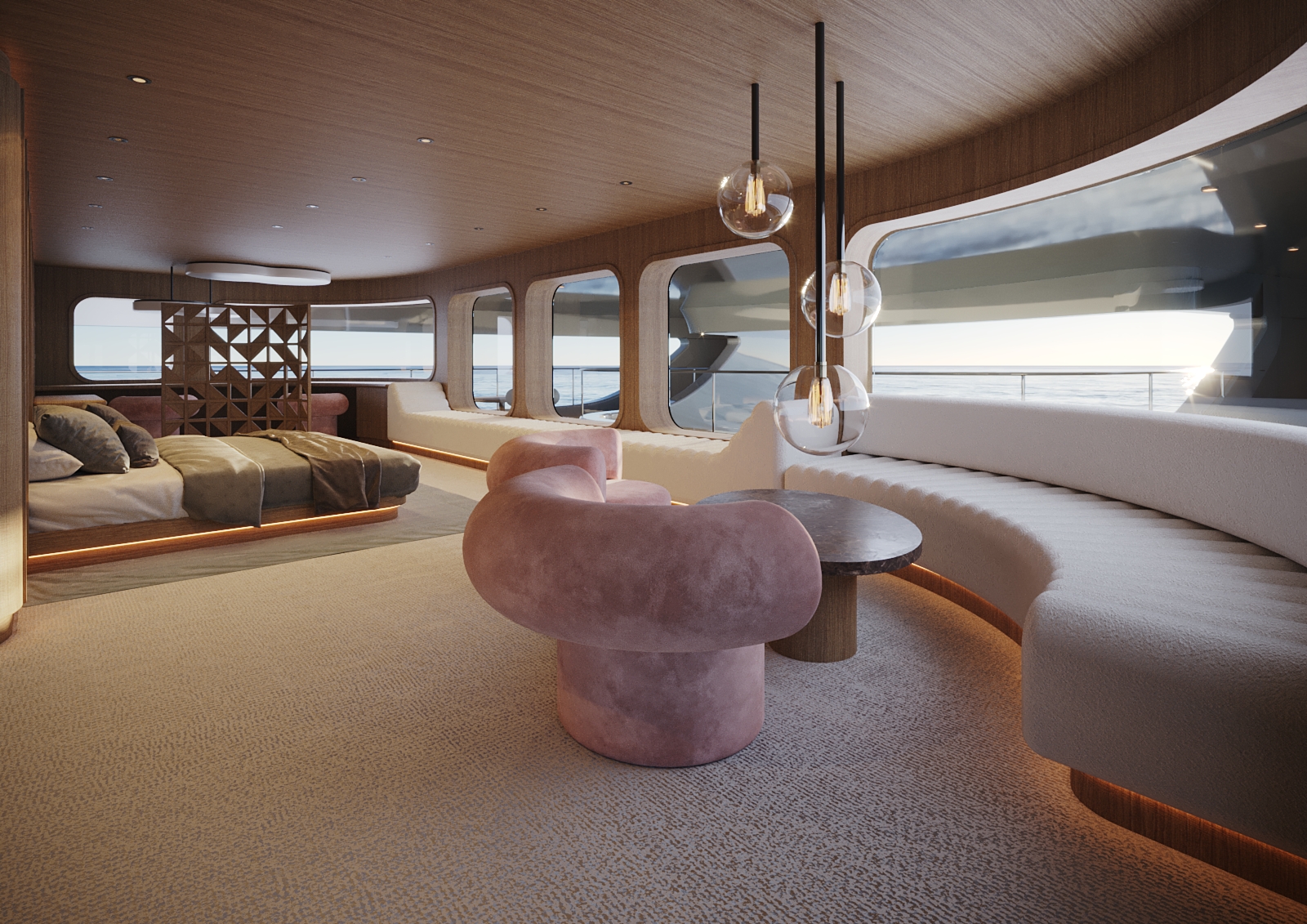
The full-width owner's cabin aboard Solsea
Inside, Béhar and his team have taken full advantage of the 43m catamaran’s broad beam, with a full-width owner’s cabin that offers 180-degree views and a private external balcony. The main deck has a lounge pool, while the rear sundeck has a bar and generous seating area. ‘For me, Solsea is a return to simpler, more respectful ways to enjoy the oceans while integrating the future of efficient propulsion, and cutting-edge technologies,’ says Béhar.
Wallpaper* Newsletter
Receive our daily digest of inspiration, escapism and design stories from around the world direct to your inbox.
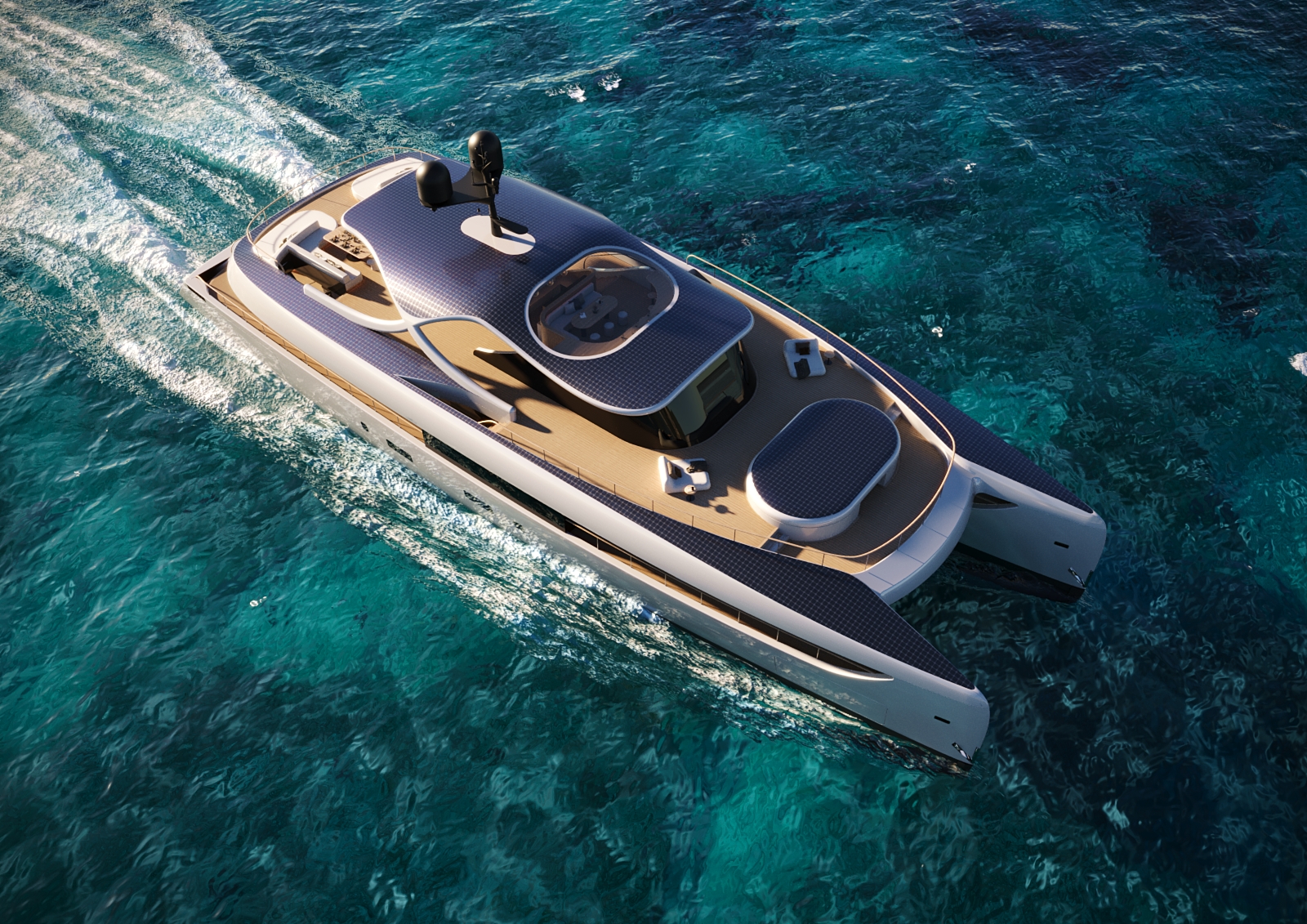
Solsea, by Yves Béhar for Rossinavi
fuseproject.com, @fuseprojectsf
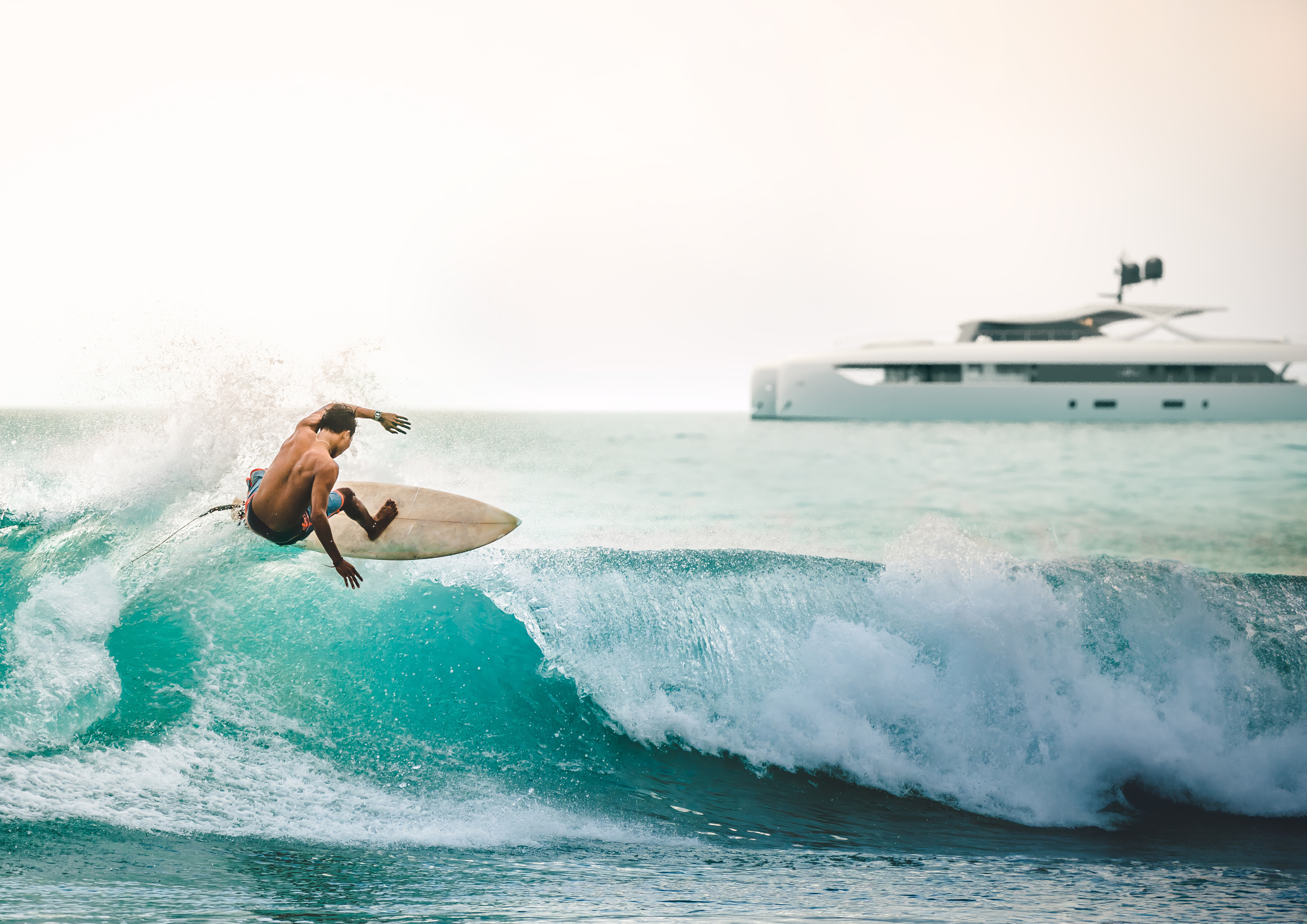
Solsea, by Yves Béhar for Rossinavi
Jonathan Bell has written for Wallpaper* magazine since 1999, covering everything from architecture and transport design to books, tech and graphic design. He is now the magazine’s Transport and Technology Editor. Jonathan has written and edited 15 books, including Concept Car Design, 21st Century House, and The New Modern House. He is also the host of Wallpaper’s first podcast.
-
 Put these emerging artists on your radar
Put these emerging artists on your radarThis crop of six new talents is poised to shake up the art world. Get to know them now
By Tianna Williams
-
 Dining at Pyrá feels like a Mediterranean kiss on both cheeks
Dining at Pyrá feels like a Mediterranean kiss on both cheeksDesigned by House of Dré, this Lonsdale Road addition dishes up an enticing fusion of Greek and Spanish cooking
By Sofia de la Cruz
-
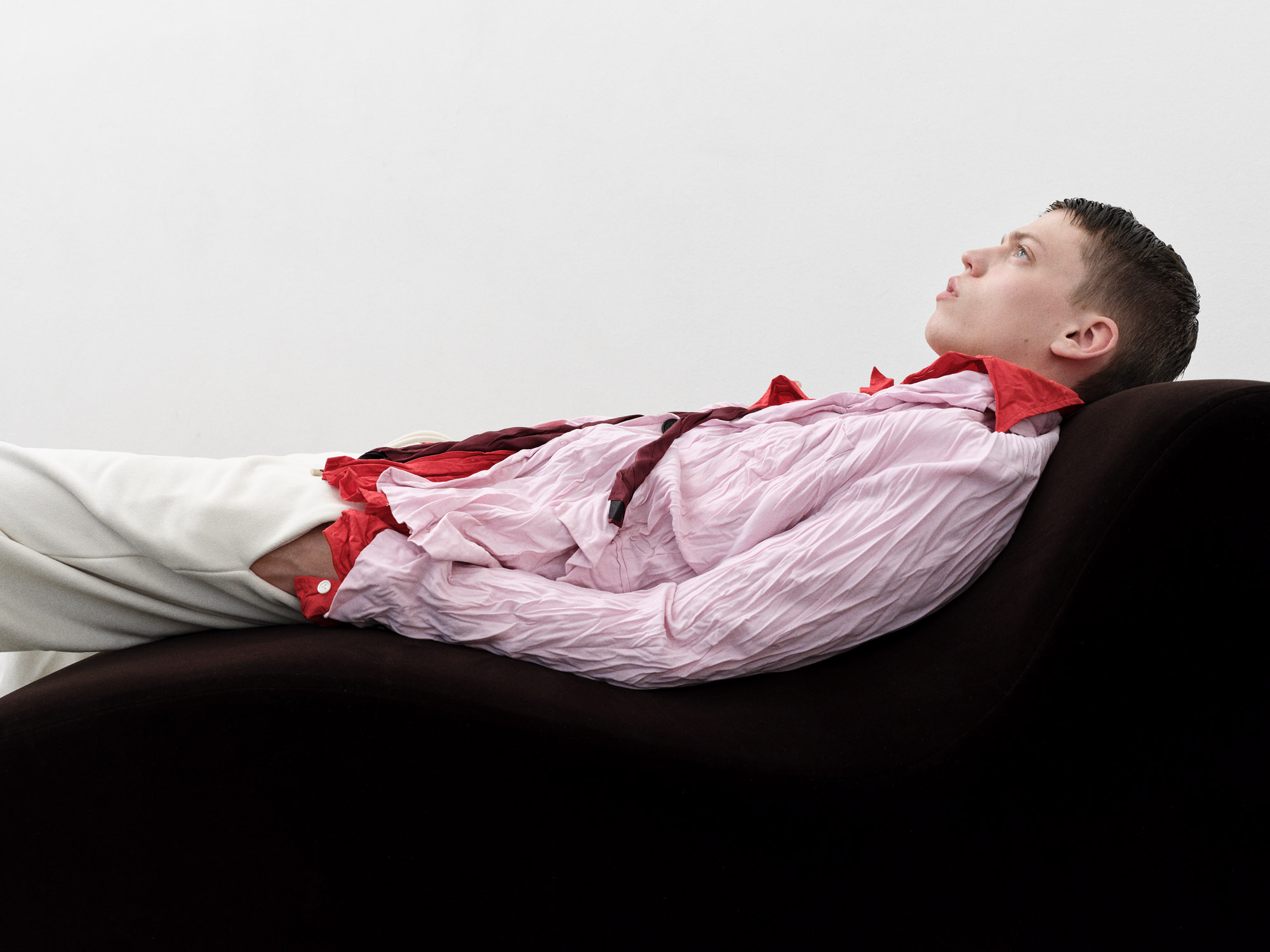 Creased, crumpled: S/S 2025 menswear is about clothes that have ‘lived a life’
Creased, crumpled: S/S 2025 menswear is about clothes that have ‘lived a life’The S/S 2025 menswear collections see designers embrace the creased and the crumpled, conjuring a mood of laidback languor that ran through the season – captured here by photographer Steve Harnacke and stylist Nicola Neri for Wallpaper*
By Jack Moss
-
 Fuseproject and Telo transform the electric pick-up truck
Fuseproject and Telo transform the electric pick-up truckThe ultra-compact Telo EV crams a full-size pick-up truck into the footprint of a Mini. Yves Behar explains how the project came into being
By Jonathan Bell
-
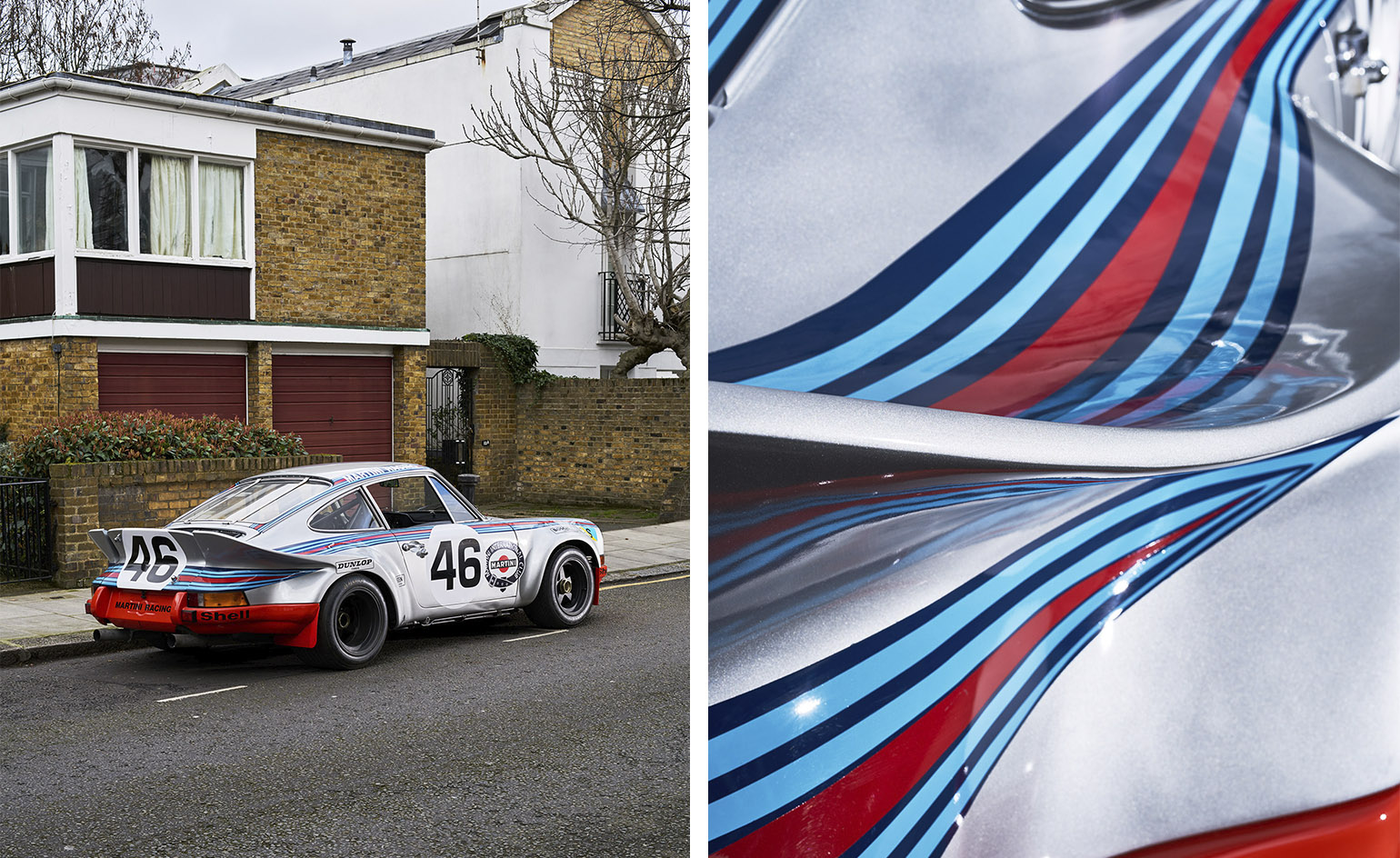 Hot wheels: art dealer Kenny Schachter pops the bonnet on his car collection
Hot wheels: art dealer Kenny Schachter pops the bonnet on his car collectionBy Jonathan Bell